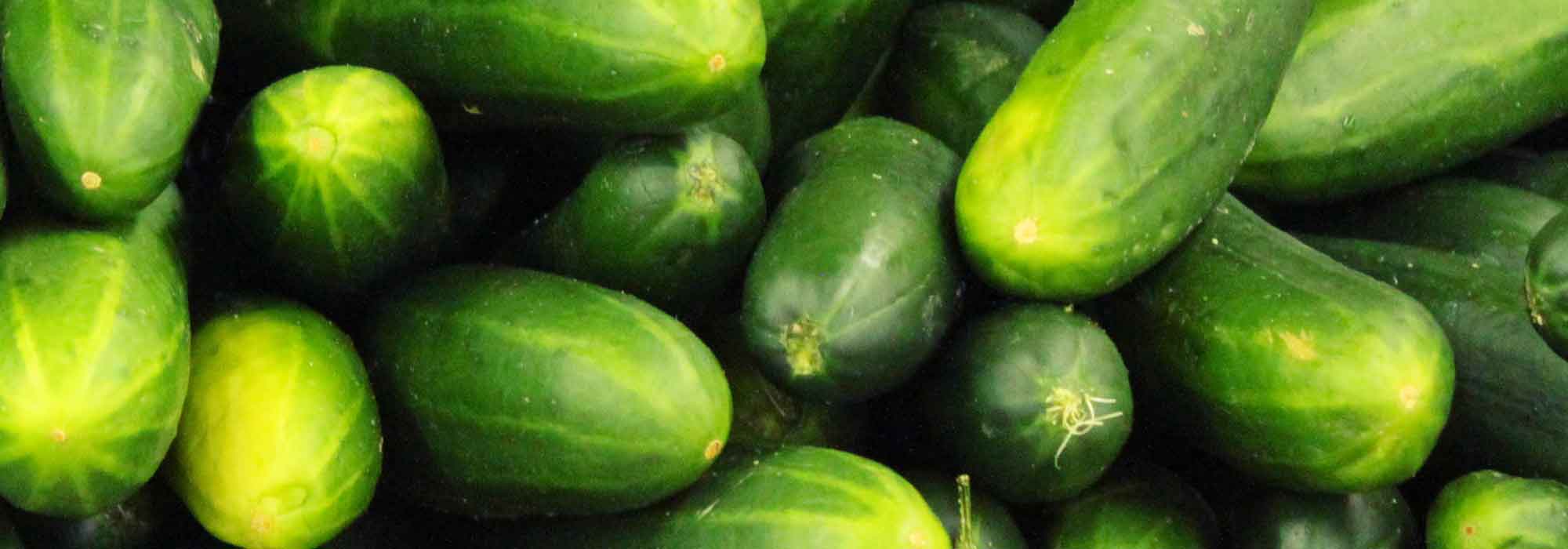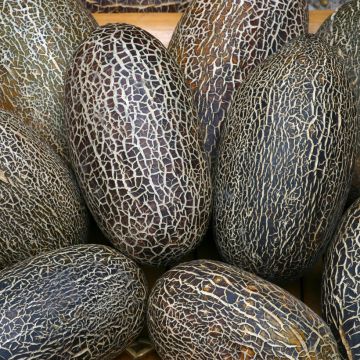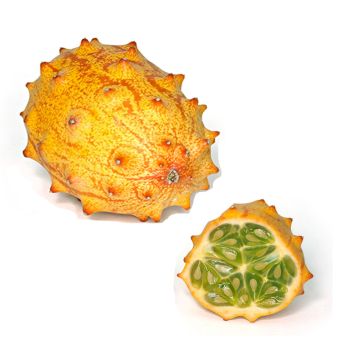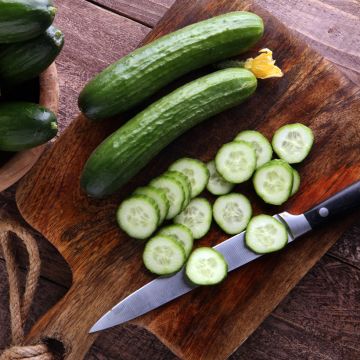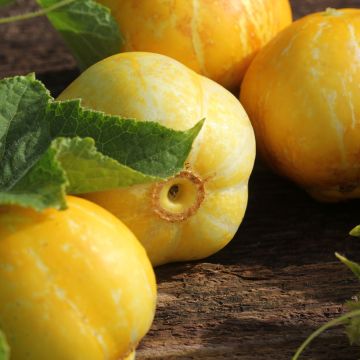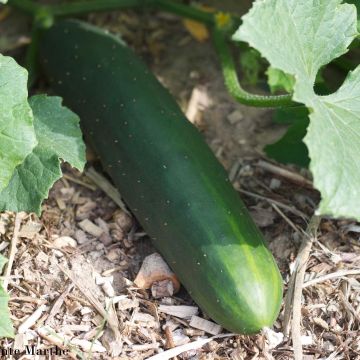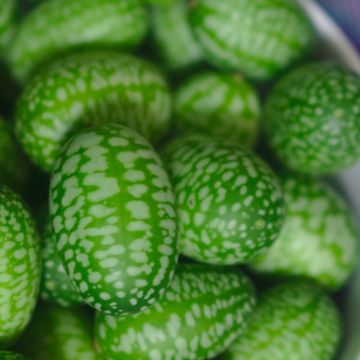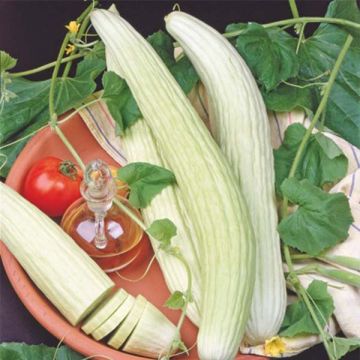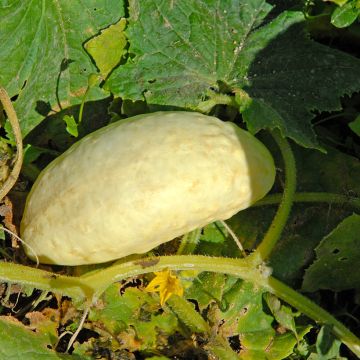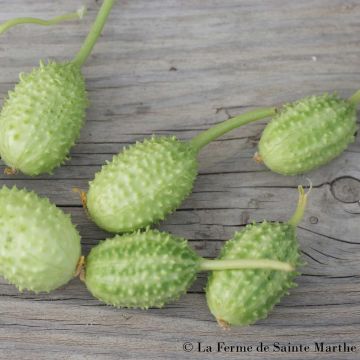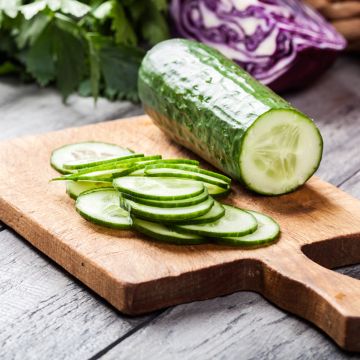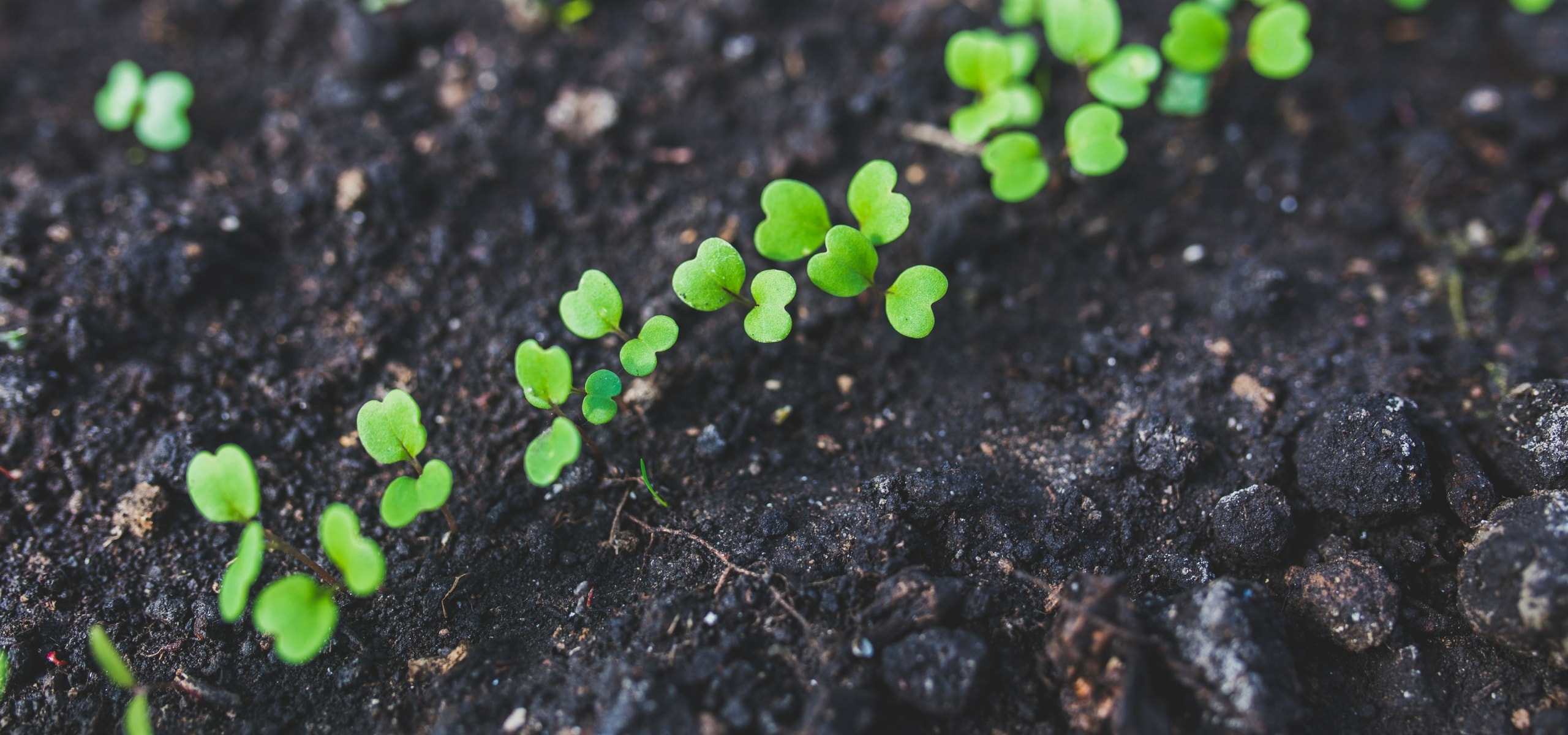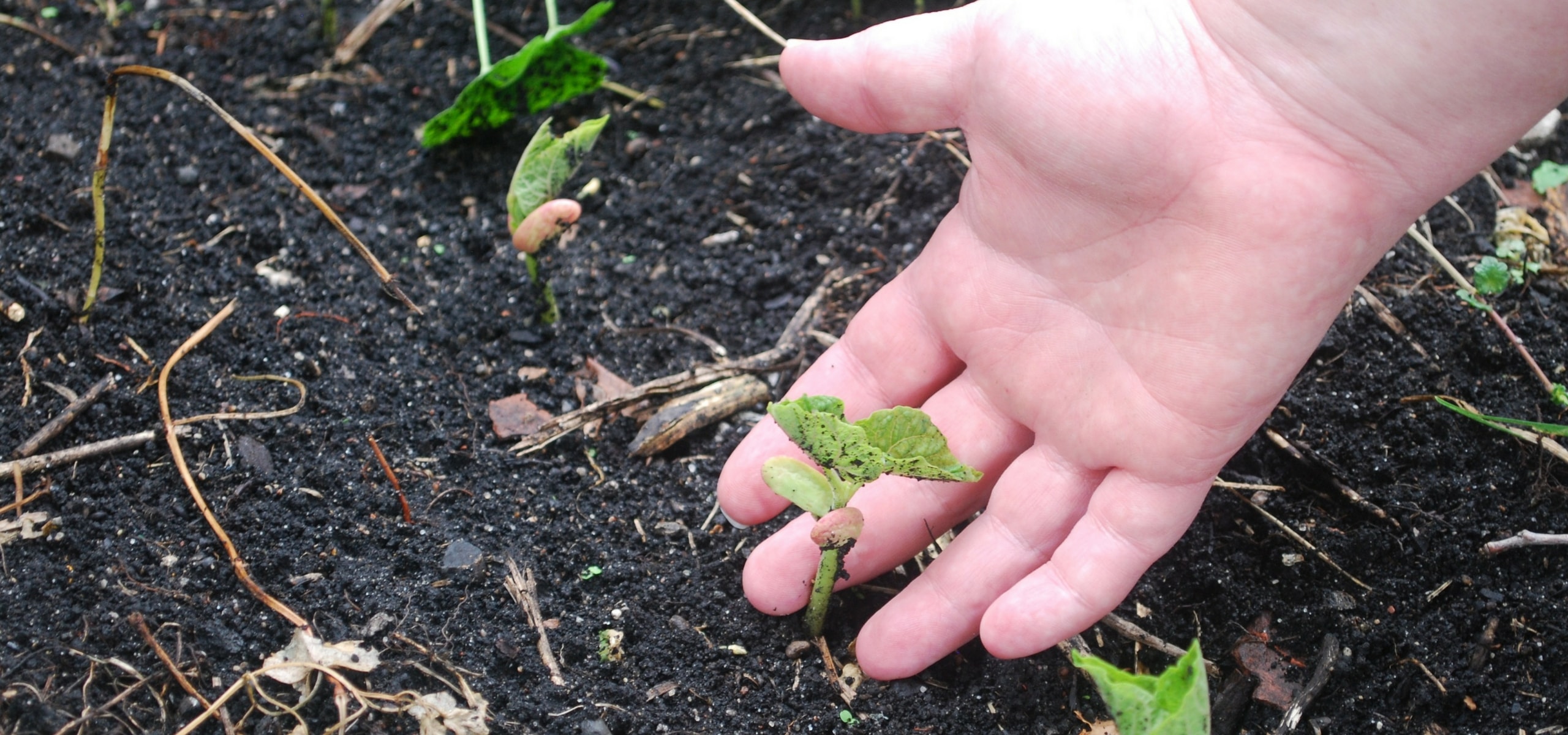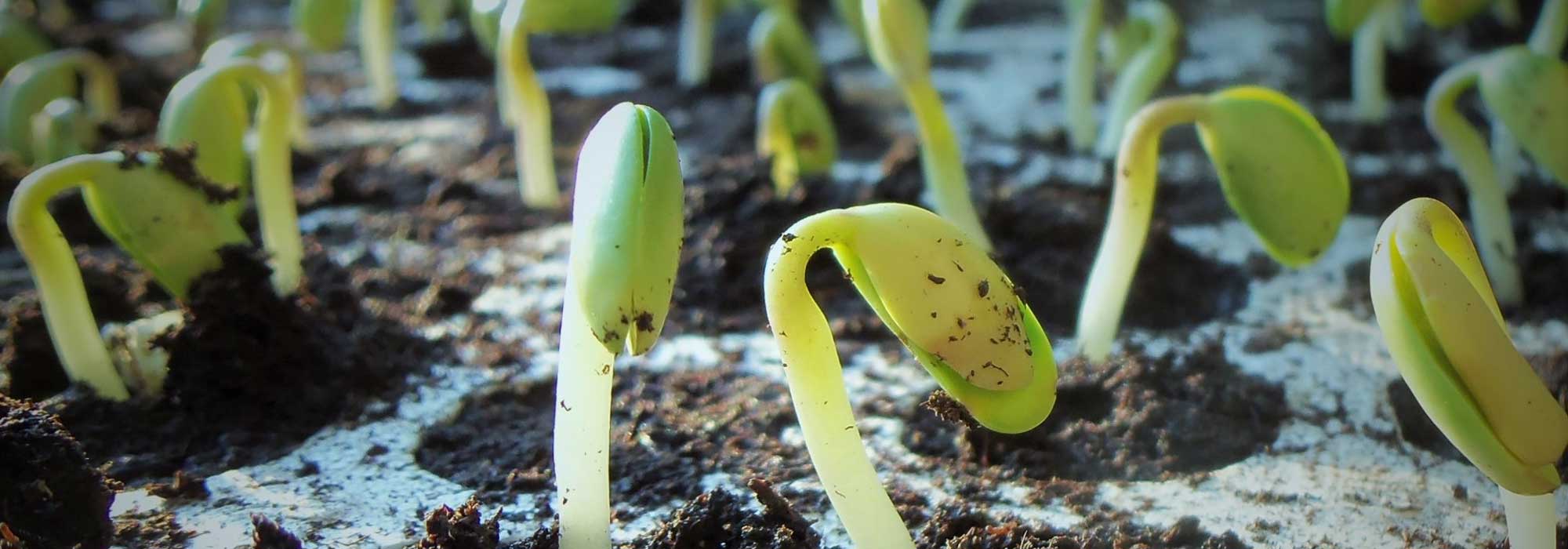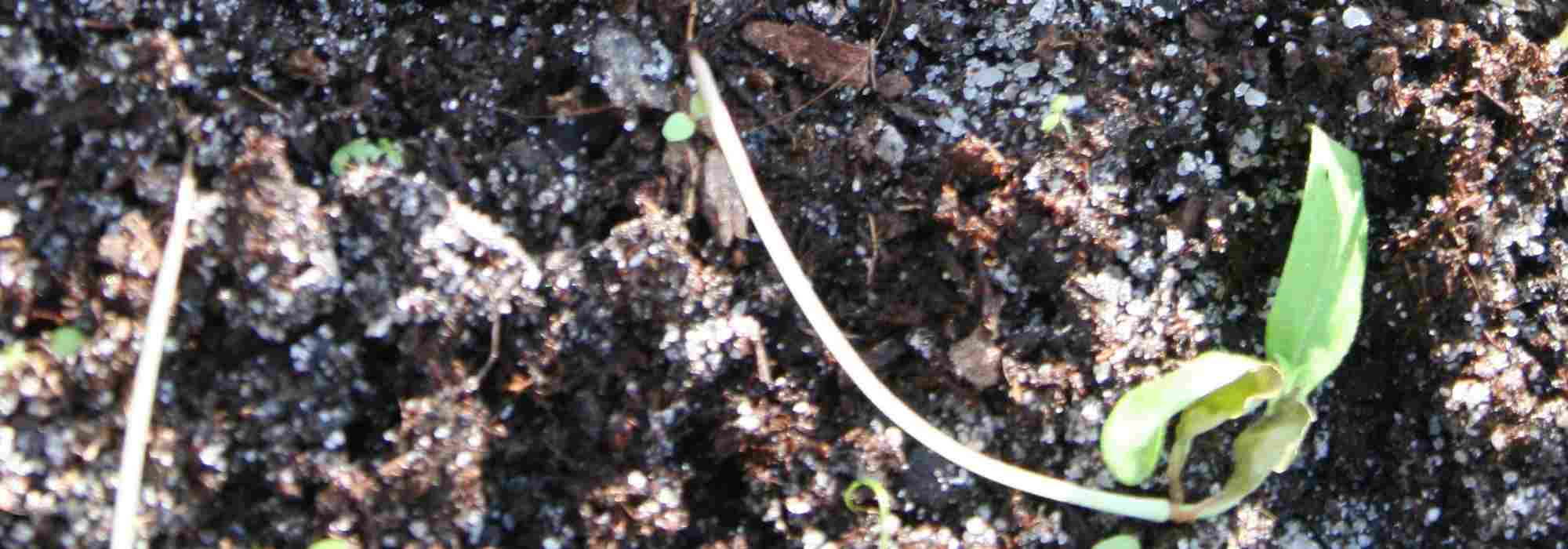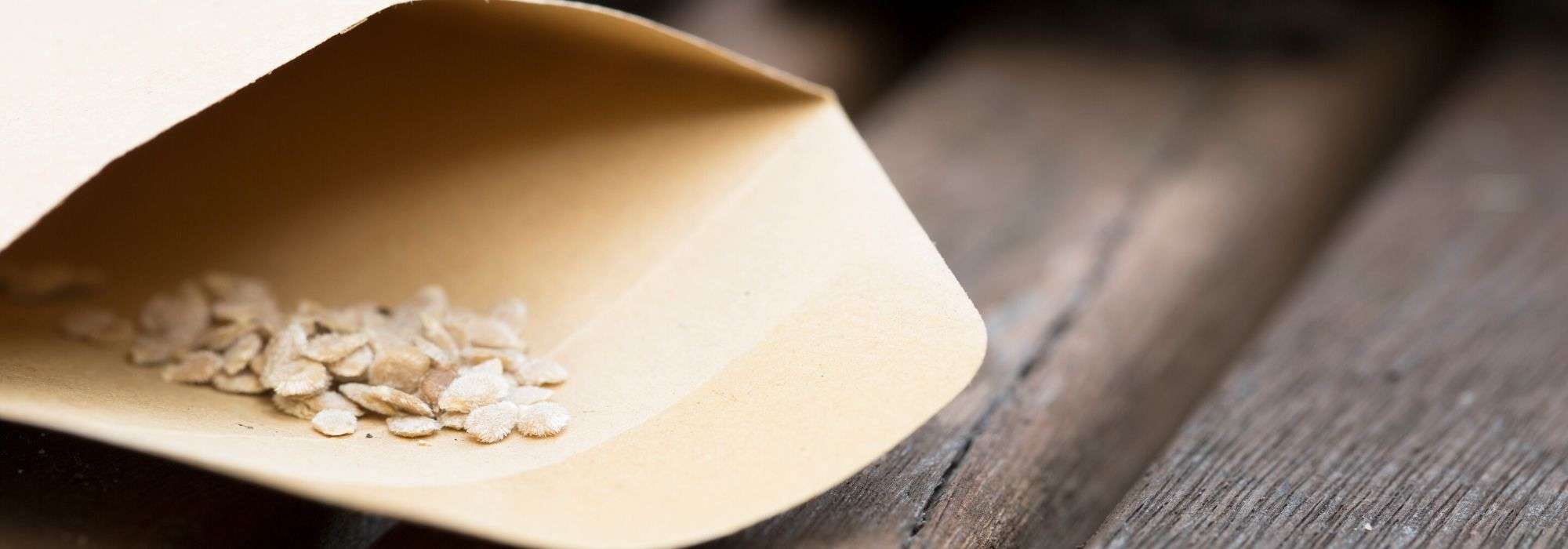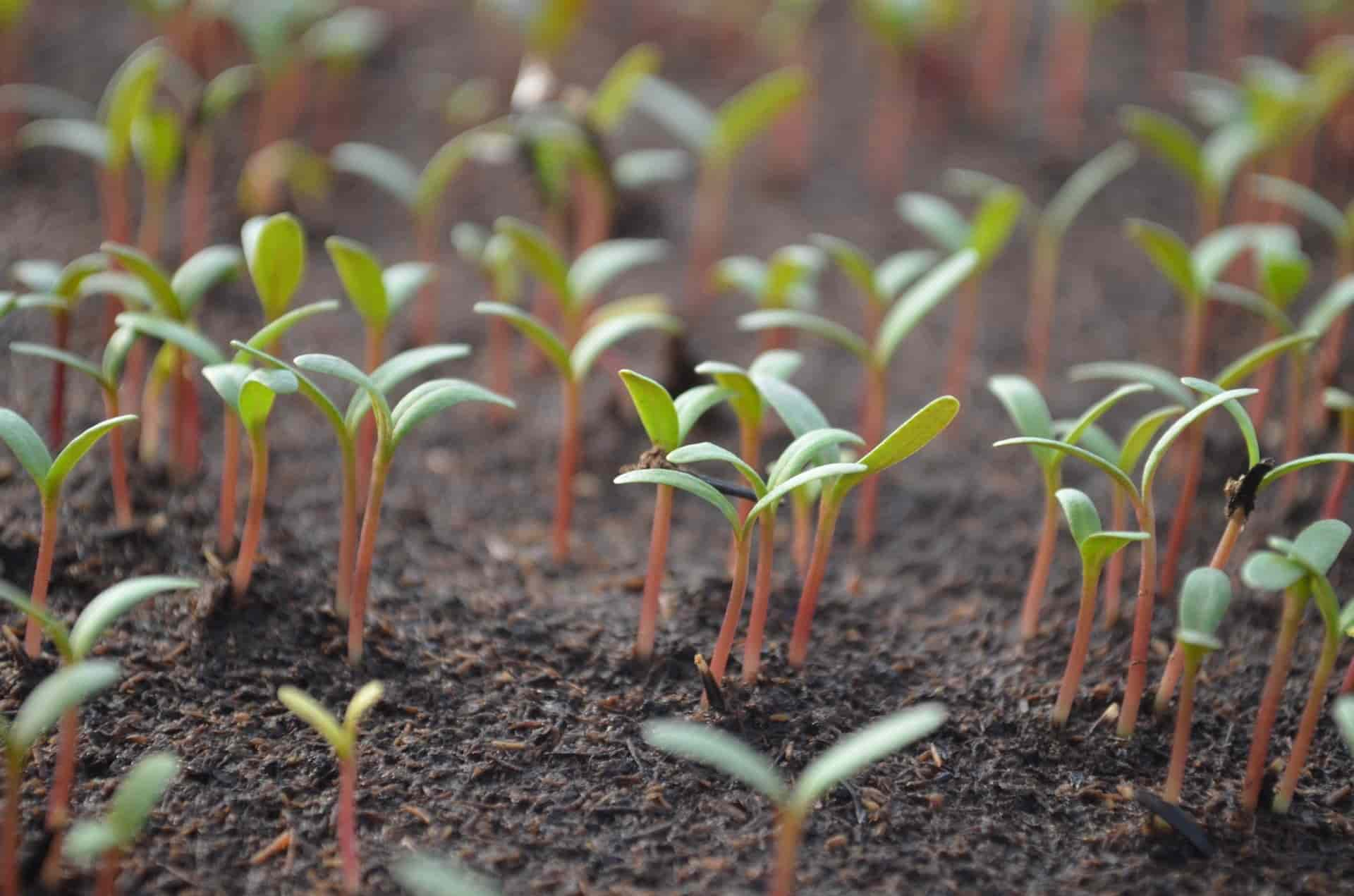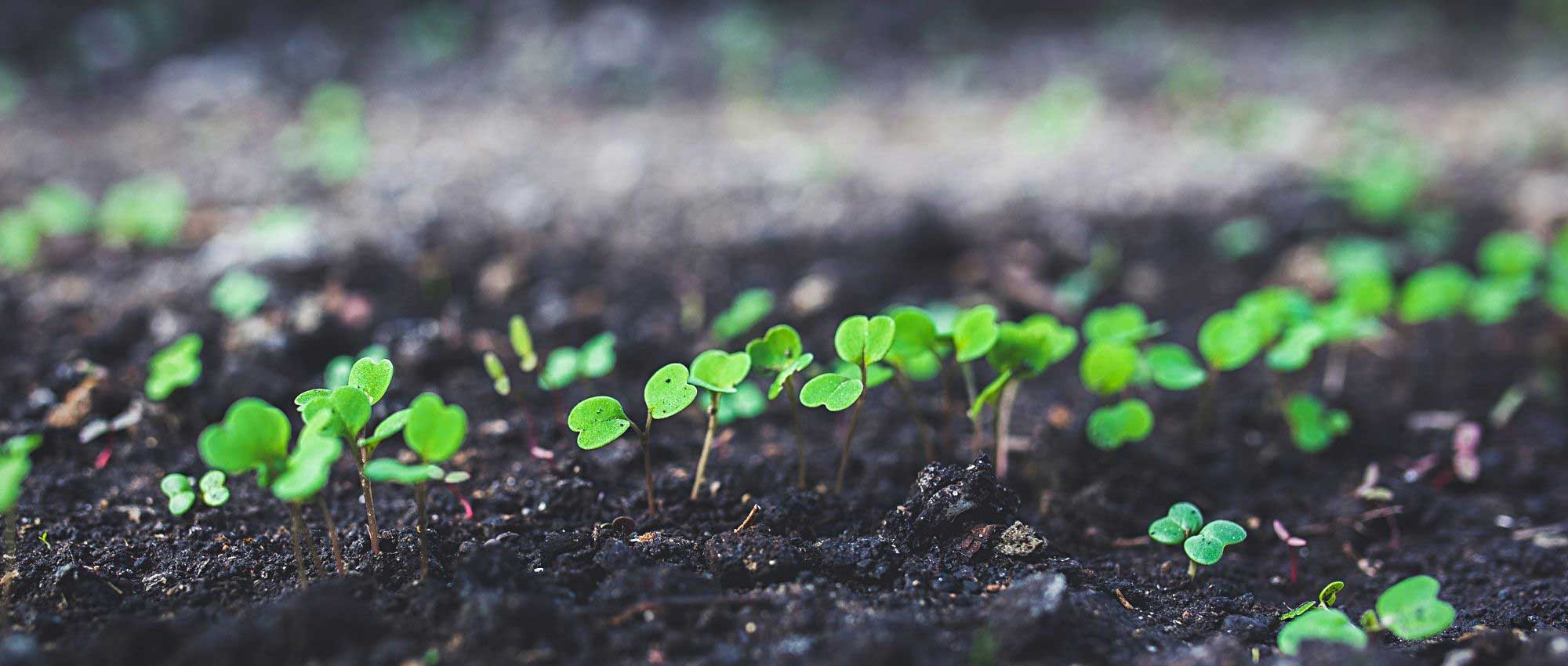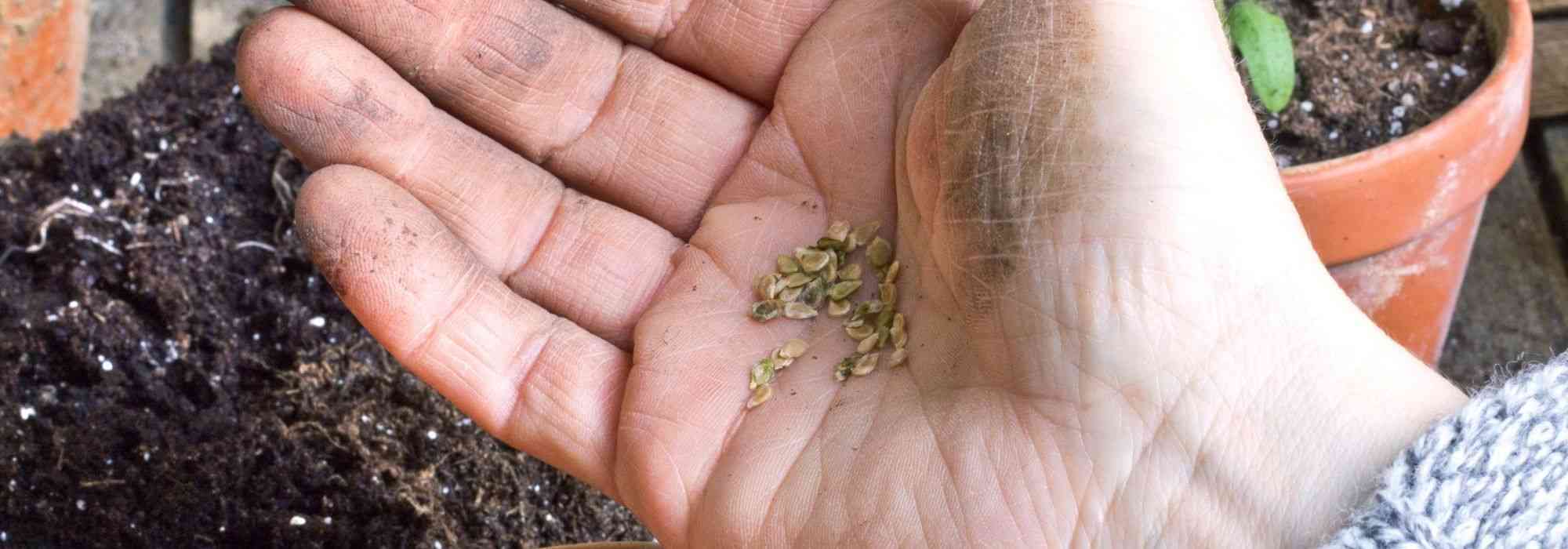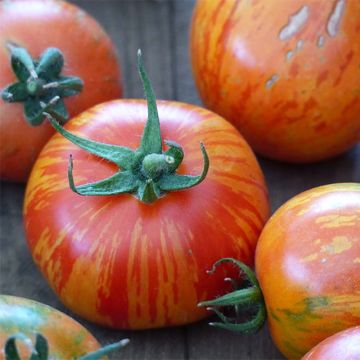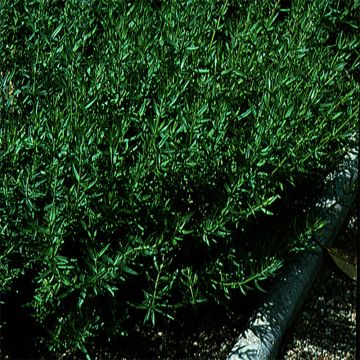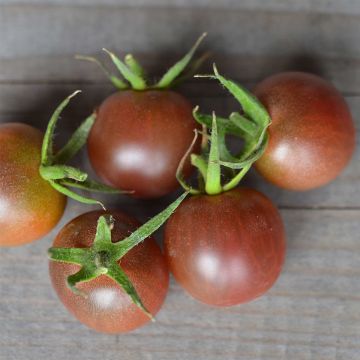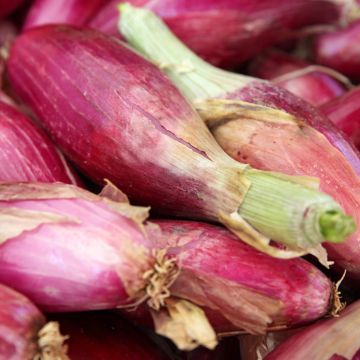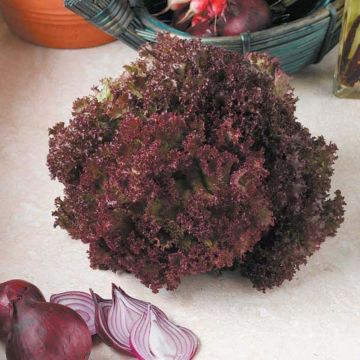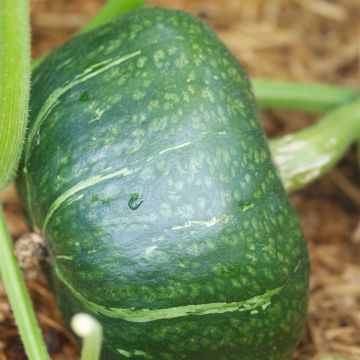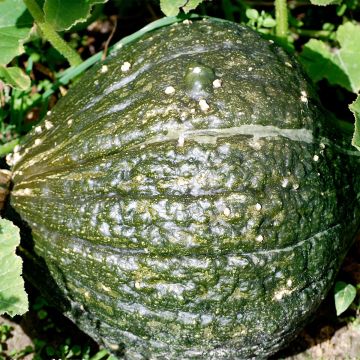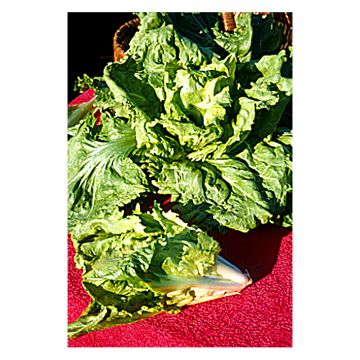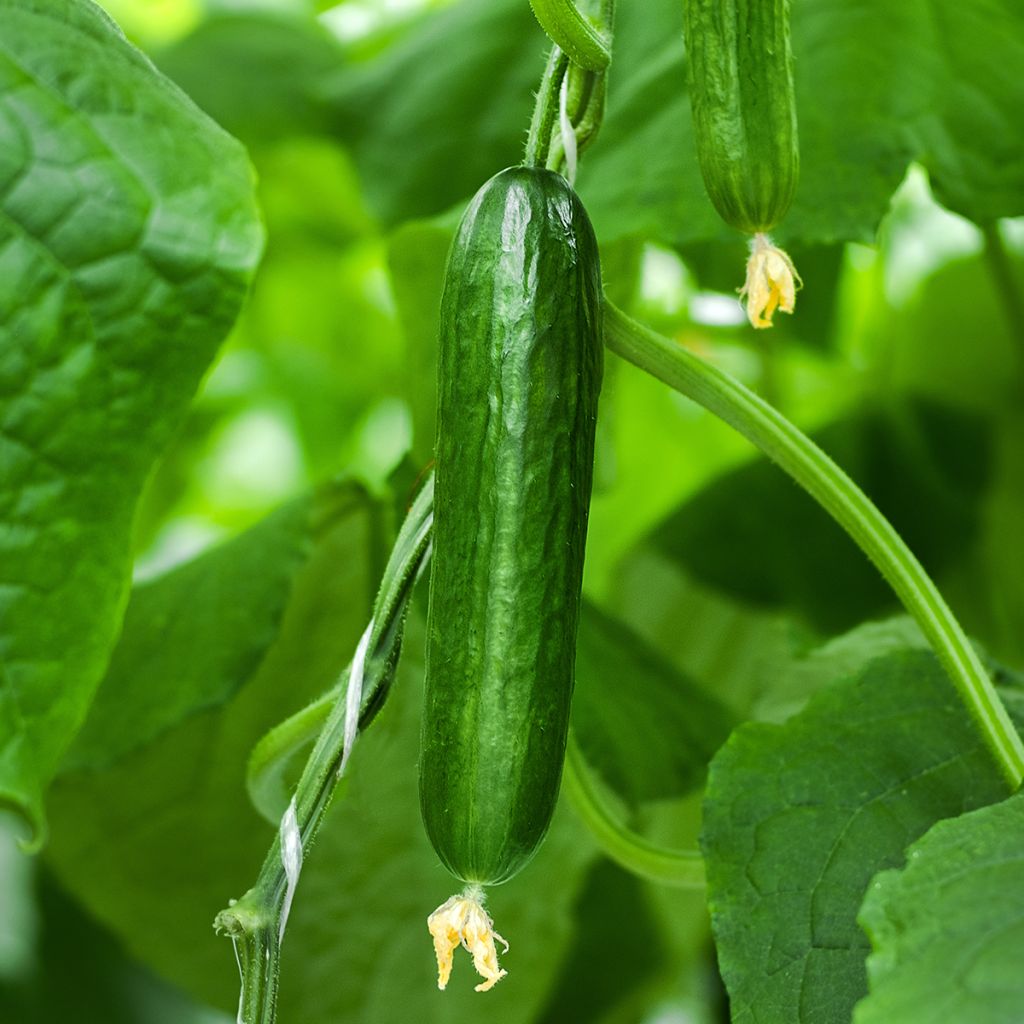

Concombre Crokdelis F1
Concombre Crokdelis F1
Cucumis sativus Crokdelis F1
Cucumber
Special offer!
Receive a €20 voucher for any order over €90 (excluding delivery costs, credit notes, and plastic-free options)!
1- Add your favorite plants to your cart.
2- Once you have reached €90, confirm your order (you can even choose the delivery date!).
3- As soon as your order is shipped, you will receive an email containing your voucher code, valid for 3 months (90 days).
Your voucher is unique and can only be used once, for any order with a minimum value of €20, excluding delivery costs.
Can be combined with other current offers, non-divisible and non-refundable.
Home or relay delivery (depending on size and destination)
Schedule delivery date,
and select date in basket
This plant carries a 6 months recovery warranty
More information
We guarantee the quality of our plants for a full growing cycle, and will replace at our expense any plant that fails to recover under normal climatic and planting conditions.
Description
'Jogger F1' Cucumber is a productive, hardy late-maturing hybrid variety, ideal for growing outdoors. The 25 cm long, dark green fruits have crisp, juicy flesh with no bitter aftertaste. Sow from April to June and harvest from July to October.
Cucumber is one of the most popular summer vegetables. Both refreshing and low in calories, it is perfect added to summer salads and cocktails, sliced in sandwiches and blended into smoothies. Cucumber comes in an array of colours, shapes and sizes. Classic slicing varieties are long and dark green, lunchbox varieties are short and bumpy, Armenian cucumbers are light green and lemon cucumbers are round and yellow! Some are suitable for growing outdoors, others need to be grown under cover in a polytunnel or a greenhouse.
Cucumbers do well in light, loose, nutrient-dense soils with plenty of sunlight and temperatures ranging from 18 to 22°C. Cucumbers are moisture-loving plants that need watering regularly.
Harvesting: Cucumbers are harvested when they are full-sized, before they start to turn yellow and bitter. Regular harvests will stimulate fruit production. They are generally ready to harvest about 3 months after sowing, from June to September.
Storage: Cucumbers will stay fresh for several days in the refrigerator. They can also be pickled or lacto-fermented for later use.
Good to know: Cucumber plants are prone to powdery mildew (a fungal disease that causes a white down to form on the surface of the leaves). When watering, try to avoid getting water on the leaves or flowers. When growing cucumbers in a greenhouse or polytunnel, make sure it is well-ventilated. Good companion plants include lettuce and beans. Avoid growing your cucumbers too close to potatoes and tomatoes.
Even if the vegetable garden is first and foremost a place for growing great quality veg, it’s always a good idea to leave a bit of room for flowers. Growing flowers alongside your vegetable plants will make your general gardening experience more enjoyable and is a great way to attract pollinators and repel garden pests! Flowers such as gaillardia, marigolds, zinnias, cosmos or nasturtiums can be sown in and around the rows of vegetables. Herbs such as dill can be very useful also. Bear in mind that some companion plants self-seed easily and can be a bit invasive (borage, chives, lemon balm etc.)
NB: This variety is marked F1 for "F1 hybrid" meaning that its qualities are derived from carefully selected parent plants. This results in a variety that is both full of flavour and resistant to diseases. Sometimes criticized or wrongly assimilated to GMOs, F1 hybrid seeds have the advantage of producing reliable, uniform, disease resistant plants. Unfortunately, these qualities will not be passed on to following generations.
Harvest
Plant habit
Foliage
Botanical data
Cucumis
sativus
Crokdelis F1
Cucurbitaceae
Cucumber
Cultivar or hybrid
Annual
Other Cucumber seeds
View all →Planting and care
Cucumber sowing:
Cucumber germination occurs at a temperature between 16°C and 35°C. The seedlings usually emerge within 8 to 10 days at these temperatures. Sowing is done from March to June in pots or directly in the ground:
In pots, one month before the planned planting date, place 2 or 3 seeds in a special seed compost and water with a very fine spray. When the two true leaves appear, keep the strongest plant. Keep the young plant at a mild temperature, making sure the substrate remains moist but not waterlogged.
Directly in the ground, sowing is done later, when the soil is well warmed: sow in groups of 2 or 3 seeds and proceed as for sowing in pots. During planting or direct sowing, maintain a distance of 1 m between each row and 50 to 60 cm between each plant.
Cucumber cultivation:
Cucumber is a fairly demanding vegetable that requires rich soil. It is advisable to add mature compost (about 3 kg per m²) in autumn, by digging to a depth of 5 cm, after having loosened the soil, as is done for all vegetable crops. It prefers neutral soil (pH 7) but will thrive in slightly acidic or alkaline soil (pH between 5.5 and 7.5).
Cucumber can be grown flat, but to save space and promote production, don't hesitate to use its climbing habit by training it: on a frame covered with wire mesh, inclined at a 45-degree angle, it will provide beneficial shade to lettuces or even in a teepee to add a touch of whimsy to the vegetable garden. When the plants are vertically trained, the cultivation is done on a single stem that will be pinched at a maximum height of 2.5 m. When grown flat, pinch above the second leaf to obtain two stems that will be pinched above the 4th leaf. The final pruning consists of cutting above a leaf for each formed fruit.
Cucumber pairs well with corn, lettuce, and beans, but avoid planting it near tomatoes and potatoes.
Seedlings
Care
Intended location
Planting & care advice
This item has not been reviewed yet - be the first to leave a review about it.
Similar products
Haven't found what you were looking for?
Hardiness is the lowest winter temperature a plant can endure without suffering serious damage or even dying. However, hardiness is affected by location (a sheltered area, such as a patio), protection (winter cover) and soil type (hardiness is improved by well-drained soil).

Photo Sharing Terms & Conditions
In order to encourage gardeners to interact and share their experiences, Promesse de fleurs offers various media enabling content to be uploaded onto its Site - in particular via the ‘Photo sharing’ module.
The User agrees to refrain from:
- Posting any content that is illegal, prejudicial, insulting, racist, inciteful to hatred, revisionist, contrary to public decency, that infringes on privacy or on the privacy rights of third parties, in particular the publicity rights of persons and goods, intellectual property rights, or the right to privacy.
- Submitting content on behalf of a third party;
- Impersonate the identity of a third party and/or publish any personal information about a third party;
In general, the User undertakes to refrain from any unethical behaviour.
All Content (in particular text, comments, files, images, photos, videos, creative works, etc.), which may be subject to property or intellectual property rights, image or other private rights, shall remain the property of the User, subject to the limited rights granted by the terms of the licence granted by Promesse de fleurs as stated below. Users are at liberty to publish or not to publish such Content on the Site, notably via the ‘Photo Sharing’ facility, and accept that this Content shall be made public and freely accessible, notably on the Internet.
Users further acknowledge, undertake to have ,and guarantee that they hold all necessary rights and permissions to publish such material on the Site, in particular with regard to the legislation in force pertaining to any privacy, property, intellectual property, image, or contractual rights, or rights of any other nature. By publishing such Content on the Site, Users acknowledge accepting full liability as publishers of the Content within the meaning of the law, and grant Promesse de fleurs, free of charge, an inclusive, worldwide licence for the said Content for the entire duration of its publication, including all reproduction, representation, up/downloading, displaying, performing, transmission, and storage rights.
Users also grant permission for their name to be linked to the Content and accept that this link may not always be made available.
By engaging in posting material, Users consent to their Content becoming automatically accessible on the Internet, in particular on other sites and/or blogs and/or web pages of the Promesse de fleurs site, including in particular social pages and the Promesse de fleurs catalogue.
Users may secure the removal of entrusted content free of charge by issuing a simple request via our contact form.
The flowering period indicated on our website applies to countries and regions located in USDA zone 8 (France, the United Kingdom, Ireland, the Netherlands, etc.)
It will vary according to where you live:
- In zones 9 to 10 (Italy, Spain, Greece, etc.), flowering will occur about 2 to 4 weeks earlier.
- In zones 6 to 7 (Germany, Poland, Slovenia, and lower mountainous regions), flowering will be delayed by 2 to 3 weeks.
- In zone 5 (Central Europe, Scandinavia), blooming will be delayed by 3 to 5 weeks.
In temperate climates, pruning of spring-flowering shrubs (forsythia, spireas, etc.) should be done just after flowering.
Pruning of summer-flowering shrubs (Indian Lilac, Perovskia, etc.) can be done in winter or spring.
In cold regions as well as with frost-sensitive plants, avoid pruning too early when severe frosts may still occur.
The planting period indicated on our website applies to countries and regions located in USDA zone 8 (France, United Kingdom, Ireland, Netherlands).
It will vary according to where you live:
- In Mediterranean zones (Marseille, Madrid, Milan, etc.), autumn and winter are the best planting periods.
- In continental zones (Strasbourg, Munich, Vienna, etc.), delay planting by 2 to 3 weeks in spring and bring it forward by 2 to 4 weeks in autumn.
- In mountainous regions (the Alps, Pyrenees, Carpathians, etc.), it is best to plant in late spring (May-June) or late summer (August-September).
The harvesting period indicated on our website applies to countries and regions in USDA zone 8 (France, England, Ireland, the Netherlands).
In colder areas (Scandinavia, Poland, Austria...) fruit and vegetable harvests are likely to be delayed by 3-4 weeks.
In warmer areas (Italy, Spain, Greece, etc.), harvesting will probably take place earlier, depending on weather conditions.
The sowing periods indicated on our website apply to countries and regions within USDA Zone 8 (France, UK, Ireland, Netherlands).
In colder areas (Scandinavia, Poland, Austria...), delay any outdoor sowing by 3-4 weeks, or sow under glass.
In warmer climes (Italy, Spain, Greece, etc.), bring outdoor sowing forward by a few weeks.






























